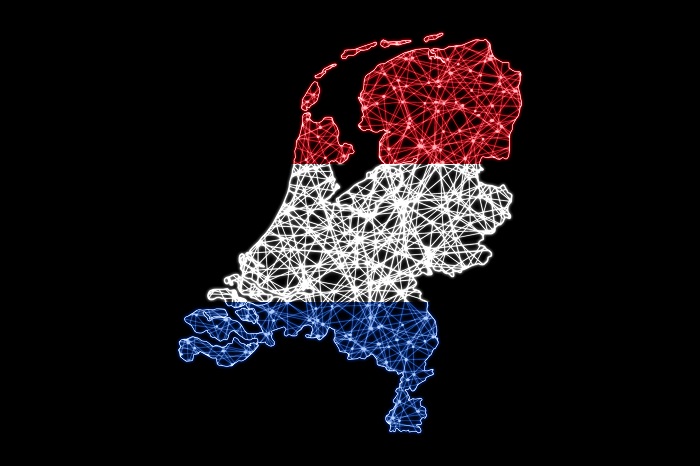The Netherlands’ Market is a perfect business location for foreign entrepreneurs. It is the gateway to densely populated Western Europe and has a well-developed logistic and technical infrastructure to do business all around Europe. The highly-skilled, multilingual, and flexible workforce, the easy way to start a business, the favorable tax regulations for businesses, a stable political climate, and a high standard of living make the Netherlands the ideal place to start a business (www.startingabusinessnl.com).
There are three options to start your business in the Netherlands:
- Incorporating a Dutch legal entity
- Establishing a branch office
- Appointing a distributor, agent, or franchisee
Incorporating a Dutch Legal Entity
The most common business entities in the Netherlands are the “Besloten Vennootschap” (“BV”: private company with limited liability) and the Naamloze Vennootschap (“NV”; public limited company). Both entities have legal personalities, issue shares, and provide limited liability for their shareholders.
The main difference between NVs and BVs is that a BV can only issue registered shares, whereas an NV can issue both registered and (freely transferable) bearer shares. For this reason, only the shares of an NV can be listed on a stock exchange. Another important difference is the paid-in capital: a BV can be incorporated with a paid-in capital of only EUR 0.01. The incorporation of an NV requires a paid-in capital of EUR 45,000.
Establishing a Branch Office
Although it is easy to incorporate a Dutch entity, it may be easier for foreign entrepreneurs to establish a branch office in the Netherlands without having to incorporate a Dutch legal entity.
A branch office can also be established as a foreign entity. For entities outside the EEA, there are specific regulations to meet the levels of Dutch corporate law. For example, they need to file their annual financial reports (with the approval of an accountant) and meet minimum capital requirements. All branch offices have to be registered at the Chamber of Commerce.
Appointing a Distributor, Agent, or Franchisee
An important benefit of appointing a distributor, agent, or franchisee is that you can choose a person or a company in the Netherlands that is already familiar with the Dutch market. In addition, you can shift part of the entrepreneurial risk to another party. A downside of these forms of business is that you have less direct control.
Here is how to enter the Dutch market by appointing a distributor, agent, or franchisee:
Distribution Agreements
A distributor is a separate entity that buys goods or services from a foreign entrepreneur and sells them at its own risk to clients in the Netherlands. The distribution agreement as a specific type of agreement is not regulated under the Dutch Civil Code. Hence, only the general contract law provisions applicable to all types of agreements apply.
Specific rules for termination are based on case law. As a general rule, contracts with a duration of two years have a notice period of three months. For a contract with a duration of two to four years, a notice period of eight to twelve months is reasonable. For contracts lasting longer than ten years, the notice period should be one to two years. The distributor must be able to recoup the investment made.
Agency Agreements
A foreign company can also choose to appoint an agent in the Netherlands. This agent will mediate between the company and possibly new clients in the Netherlands. The agent will normally receive a commission for each new client he gains for the entrepreneur. If the entrepreneur agrees with the new client, there will be a written contract between these parties.
In principle, the agent and the principal are free to agree on a notice period for terminating the agency agreement. The length of the notice period must be at least one month for agreements that have lasted less than a year, two months for agreements with a duration of fewer than two years, and three months for agreements lasting more than two years.

Where no notice period has been agreed upon, the notice period will be four months for a commercial agency agreement of no more than three years, five months for agreements of more than three years, and six months for agreements of more than six years. Termination of the agency agreement can create an obligation for the principal to pay a goodwill indemnity to the commercial agent.
If either party terminates the agency agreement without abiding by the applicable notice period, the other party shall be entitled to compensation for undue termination unless the party terminating the agreement is able to show that the failure to abide by the notice period is a result of compelling reasons which have immediately been communicated to the other party.
Both the principal and the commercial agent can request a subdistrict court to dissolve the agency agreement due to a compelling reason for the termination or as a result of a change in circumstances of such a nature that the terminating party cannot reasonably be expected to continue the agreement. The bankruptcy of the commercial agent or a material breach of the agency agreement by one of the parties justifies the immediate dissolution of the agency agreement.
Franchise Agreements
Lastly, one can choose a franchise agreement with a company based in the Netherlands. Under a franchise agreement, the Dutch company (franchisee) is allowed to use the brand name and brand logo of the foreign entrepreneur (franchisor) for selling products or goods in the Netherlands.
If you are interested to know more about franchising, these articles below will help you:
5 Best Ways to Run a Franchise
4 Key Differences of Franchise and License: Which One is Best for you?
6 Essential Elements of Franchise Agreement
Best 5 Tips You Should Know For Franchising Your Business
In exchange, the franchisor shall receive continued compensation (royalties). The economic risk of the exploitation lies with the Dutch company. Franchise agreements are regulated by the Franchise Act to protect the interests of the franchisees.
Franchising agreements typically involve the granting of extensive licenses to the franchisee to use the brand name, logo, and business formula of the franchisor. The franchisee may be required to follow an extensive set of guidelines and conditions intended to protect the interests and good name of the franchisor.
Other characteristic features of a franchise agreement are that the franchisor makes available expertise, takes care of staff training, and assists the franchisee in exploiting the formula.
Generally, upon concluding a franchise agreement, the feasibility of a business will first be assessed. It has to be checked what kind of products the franchisee will have to offer, what the market potential is, and what expenses, turnover, and profit are to be expected.
According to the Franchise Act, prior to concluding a franchise agreement, franchisors must give the franchisee sufficient information so that he is able to have a sufficiently clear picture of what he agrees with. Franchisors commonly provide a potential franchisee with operational forecasts, though this is not mandatory.
If operational forecasts are given, their content must be correct and based on a proper market survey. If this is not the case, the franchisor may be liable for the damage the franchisee suffers as a consequence of the improper survey.
There are many different types of franchises. The franchisor can, for instance, provide a “total business concept” (hard franchise) whereby parties have agreed on all business operations which they may not deviate from.
Occasionally, this is also used in the “shop-in-shop” formula, when part of the retail space is provided for franchising. In addition, there is soft franchising whereby the business owner has more freedom in establishing a company, and agreements are, for instance, limited to using the common trademark or logo (usually within the context of an association or cooperation).
Hot topics
E-Commerce
You may also buy and sell products and services over the internet in Europe, but you have to respect the legal and contractual rights of your European distributor, agent, or franchisee.
Under Dutch law, the manufacturer is allowed to sell its products in the market of the distributor, agent, or franchisee. However, manufacturers, distributors, franchisees, or agents can make other arrangements in their contracts, such as for example, agreeing that a manufacturer is not allowed to actively sell products in the agreed-upon territory.
In the distribution agreement, parties can agree that distributors, franchisees, or agents are not allowed to start an online shop to sell the products of the manufacturer or can do so only under certain conditions.
A typical condition is that distributors, franchisees, or agents should take technical precautions so that the active sale of products outside the agreed territory is prevented.
Geo-Blocking
It is not allowed to prevent the sale of products to persons in the other EU Member States (geo-blocking). However, delivery abroad may be prohibited, so customers will have to pick up their products. This is part of the “Digital Single Market,” free movement in e-commerce without borders. Geo-blocking does not apply to:
- Copyright protected products, such as e-books, music, and films
- Financial and audio-visual services
- Transport and healthcare services
- Social services.
Pricing Arrangements
Sometimes a supplier or franchisor makes arrangements regarding the price at which the distributors or franchisees have to sell their products or services to their buyers. For arrangements regarding this resale price, strict requirements are in place. The supplier is allowed to impose a maximum resale price or give a recommended price for resale. However, arrangements made on minimum prices or fixed resale prices are considered to be unlawful pricing agreements.
Conclusion
There are many options for selling your products in the Netherlands and the European Union without having to take all risks in an unknown market and culture. Especially the conclusion of a distribution, agency, or franchise agreement may be a good alternative to establishing a company in the EU.




